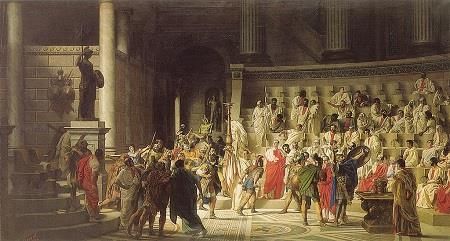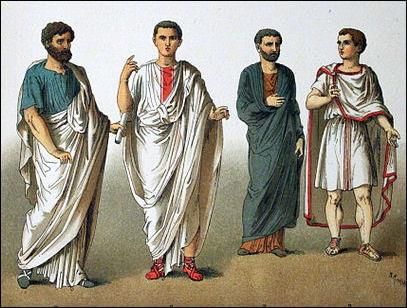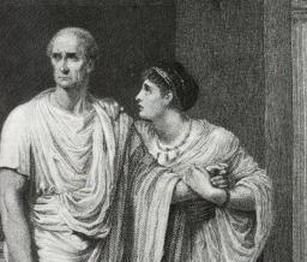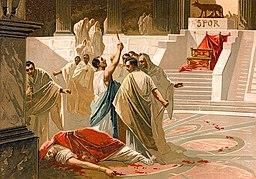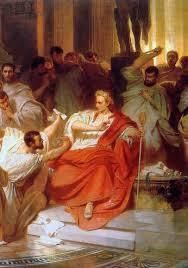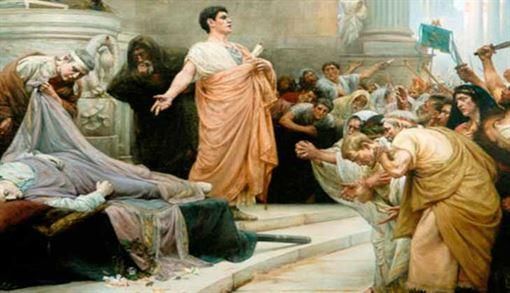|
Calpurnia experienced nightmares filled with omens that she interpreted as premonitions of evil, warning that harm would come to Caesar. |
Card: 2 / 30 |
|
Caesar dismisses Calpurnia's fears by believing that the signs are meant for ___ rather than for him personally. |
Card: 3 / 30 |
|
Decius Brutus plays a crucial role in ensuring that Caesar goes to the Senate by ___ Calpurnia's plan. |
Card: 5 / 30 |
|
Caesar's refusal to revoke the banishment of Cimber can be seen as a significant act of ___ that leads to his downfall. |
Card: 7 / 30 |
|
In his last moments, Caesar famously utters the words 'Et tu Brute?' which signifies his shock at ___ |
Card: 9 / 30 |
|
After Caesar's assassination, Brutus addresses the plebians, but it is Mark Antony's speech that ultimately incites them to ___ against the conspirators. |
Card: 11 / 30 |
|
True or False: Mark Antony immediately expresses his grief over Caesar's death in front of the plebians. |
Card: 13 / 30 |
|
False. Antony is initially dumbstruck and refrains from making any statements. |
Card: 14 / 30 |
|
The conspirators use slogans like 'Liberty, Freedom and Enfranchisement' to portray themselves as ___. |
Card: 15 / 30 |
 Unlock all Flashcards with EduRev Infinity Plan Starting from @ ₹99 only
|
|
Calpurnia convinces Caesar to stay home due to her fears, but who ultimately persuades him to go to the Senate? |
Card: 19 / 30 |
|
The conspirators claim to protect the rights of Romans by shouting slogans of 'Liberty, Freedom and Enfranchisement'. What is the irony in their actions? |
Card: 23 / 30 |
|
True or False: Caesar believed that the omens Calpurnia described were personally directed at him. |
Card: 27 / 30 |
|
False. Caesar dismissed the omens as general signs and did not believe they were meant specifically for him. |
Card: 28 / 30 |
|
Caesar rejects the petition of Cimber regarding his brother's banishment. This decision is symbolically referred to as ___ in his downfall. |
Card: 29 / 30 |





